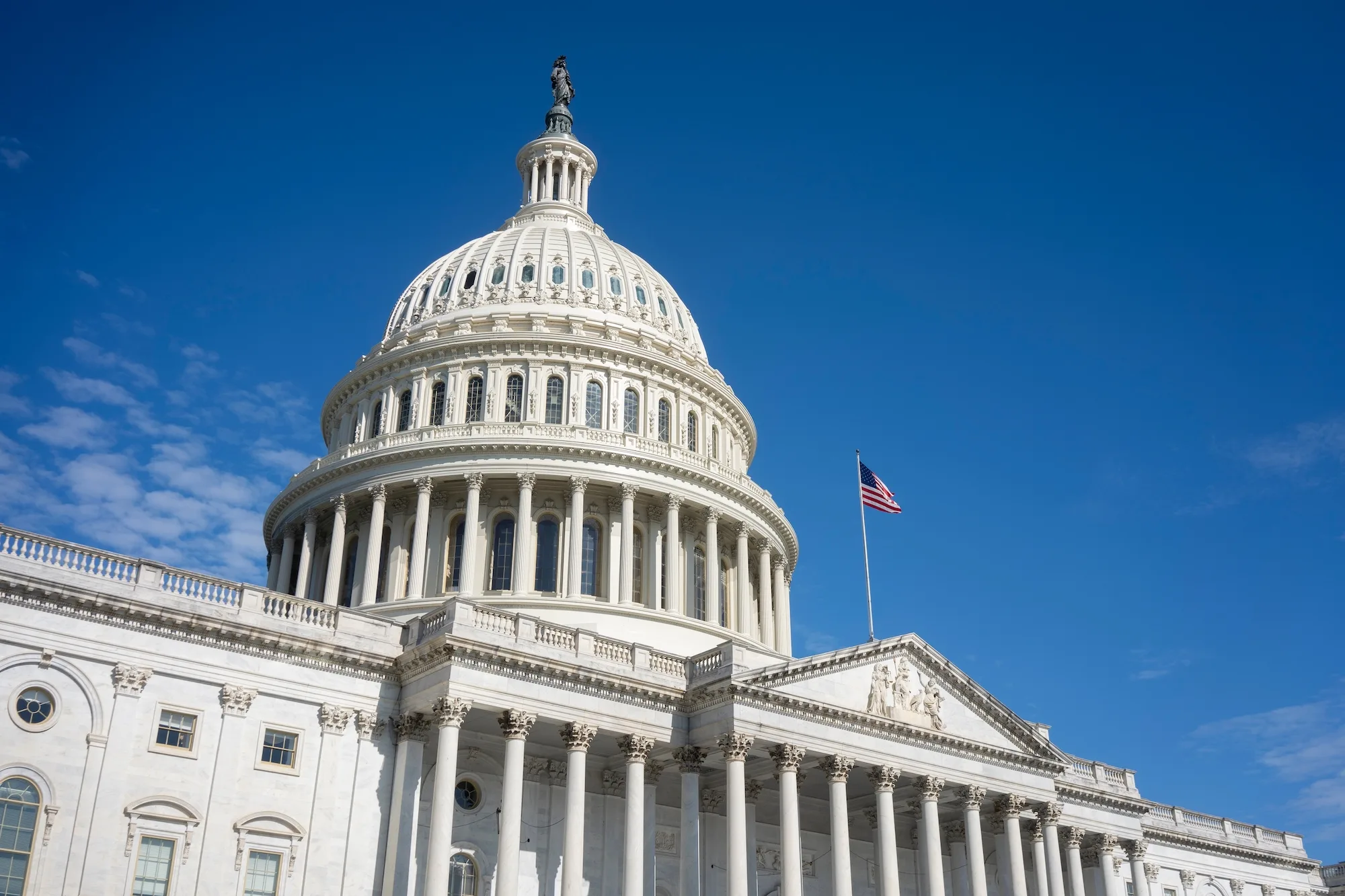
Nearly 400 elected state government officials from across the country are voicing opposition to the “No Bailout for Sanctuary Cities Act” (H.R. 32), which is being reviewed in Congress today. Introduced in January by New York Republican Congressman Nick LaLota, the bill was cosponsored by 15 other Republicans from New York and various other states.
Elected officials from New York, Pennsylvania, Colorado, and others told Documented that the bill grants federal officials sweeping discretion to withhold federal funding from states and localities across different programs, solely on the basis of their compliance with federal immigration enforcement.
In a letter addressed to House leaders today, they warned that if passed, the bill could put the National School Lunch Program, Meals on Wheels, Head Start, public transit, emergency medical care, and disaster response services at risk.
Immigration News, Curated
Sign up to get our curation of news, insights on big stories, job announcements, and events happening in immigration.

Please check your email for further instructions.
{ submitNewsletterForm(event); onButtonPress(redNewsletterFirstStep, redNewsletterSecondStep); }); } ]]>
“Our kids rely on our lunch and breakfast programs and the threat to take away what helps our students and our communities is just extremely unfair,” Jennifer Mecozzi, a member of the Buffalo Schools West District Board, told Documented. “This isn’t either/or.” The Buffalo City School District is New York State’s second-largest school district and is recognized as a leading urban public school system.
In New York City – one of four democratic cities whose mayors will be grilled by House Republicans in congress today about each city’s sanctuary policies — many communities are also bound to be impacted by the bill’s implementation.
The bill is intended to “make government spending more efficient. However, this is actually going to increase spending and chaos across our country,” Councilmember Shahana Hanif told Documented. “It is unconstitutional to mandate that states comply in advance to what is a violent, destructive, immigration mass deportation agenda out of federal cuts.”
One of the bill’s provisions states that “a sanctuary jurisdiction is ineligible to receive any federal funds that the sanctuary jurisdiction intends to use for the benefit (including the provision of food, shelter, healthcare services, legal services, and transportation) of aliens who are present in the United States without lawful status under the immigration laws.”
The criteria for being ineligible to receive the funds is impossible to implement, says Christopher Dormer, the Superintendent of Schools of the Norristown Area School District in Pennsylvania. “It would be impossible for us to discern because there is a Pennsylvania law that says we may not ask students immigration status when they enroll,” Dormer told Documented. “So, there would be no mechanism for us, other than guessing or committing an illegal act of discrimination by discerning that information to sit there and say, well […] we’ll only feed citizen kids.”
Beyond state law, federal law also prohibits denying the education of undocumented immigrant children, according to Plyler v. Doe (1982) — a landmark U.S. Supreme Court case that struck down a Texas law denying state funds for educating children due to their immigration status. “I would question the legality of depriving kids,” Dormer said. “Because to me, if you’re depriving them of the opportunity to participate in meal program, you’re depriving them education.”
One of the cosponsors of H.R. 32 is Pennsylvania’s Rep. Ryan Mackenzie. But for his state, the potential impact of implementing the legislation would be significant. In the Norristown Area School District alone, approximately 8,000 students could be affected, with 75% living in poverty or extreme poverty — equivalent to three out of every four students. Between 70% and 80% of students rely on school meals daily, totaling nearly 200,000 meals each month, and 1.5 million meals in a school year. The district serves a majority minority student population, with 50% identifying as Latinx and approximately 35% as African American.
Christopher Jaramillo, School Board President, Norristown Area School District, told Documented that growing up as a student back in kindergarten through grade 12, he personally benefited from the school lunch program. Jaramillo and his three siblings were raised by a single mother who worked multiple jobs to try to put food on the table. “In many instances, it was a decision of if we would pay the bills for the month or put food on the table,” he said. “Were it not for this particular program, at the time, to assist with lunch, I would have continued to go hungry when I didn’t have breakfast.”
Colorado State Senator Mike Weissman warned that the way the bill is currently written, there would be significant problems in implementation. “I’m thinking of a specific nonprofit in my city, Aurora, that aims to serve the new American community,” Weissman told Documented. “They serve folks of different statuses. You have mixed status families, maybe more than two different statuses within the same family. I did not really see language in HR 32 that takes account of that reality. It appears to be very sweeping in how it’s written to say that any organization trying to do anything for folks of non official status shall get no funds by way of federal granting.”
Indeed, other policy experts have also flagged that the bill’s text — just around 500 words — leaves room for broad policy interpretations, granting federal officials significant discretion in its implementation if passed.
“The very concerning thing about how short it is, is that it leaves a lot of power and discretion to the White House, to a president that is currently trying to use his power unlawfully to already grab power across all parts of government to only expand and give him more power,” said LiJia Gong, policy and legal director at Local Progress.
Hanif said she believes this is going to show the strength of leaders at this time and the power of organizing, as places like New York City have a history of coming together to enact laws, policies, and budgets that support immigrant communities when there have been cuts. “But of course, the terrain in this second term is much more violent,” she said.
Correction: An earlier version of this piece mistranscribed a word in Councilmember Hanif’s quote as “funding.” The correct word is “spending.” We regret the error.




